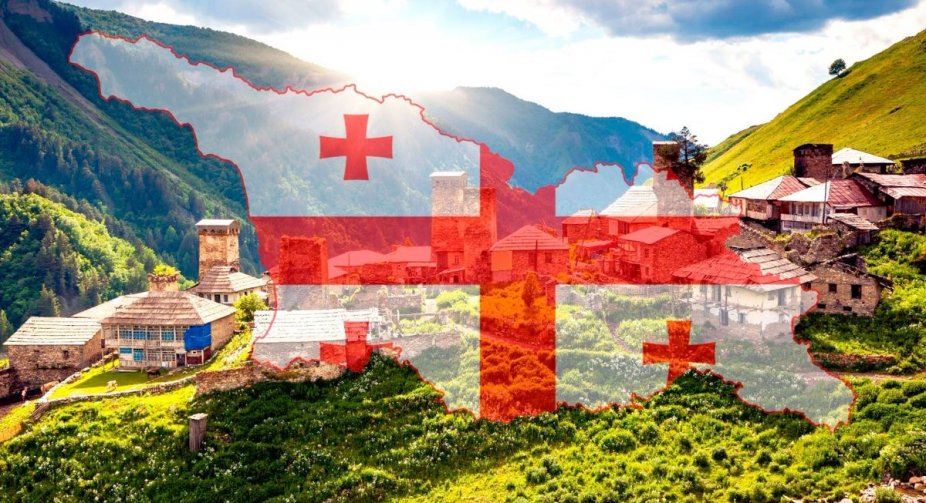Freedom of expression continued to be restricted in Georgia, justice was selective, and politically motivated prosecutions of the opposition did not stop. This is stated in the report of the international non-governmental organization Amnesty International for 2022.
"The new laws gave the authorities additional powers in the field of surveillance and reduced the independence of judicial bodies and supervisory institutions. Women and girls continued to suffer from discrimination and high levels of violence. Effective investigations into torture and other types of ill-treatment were not carried out in the controlled and non-controlled territories of the country," the document states.
Freedom of expression and assembly
Amnesty International indicates that freedom of expression has been adversely affected by "increasingly aggressive rhetoric from the authorities and defamation lawsuits against critical journalists, together with the authorities' reluctance to effectively investigate crimes against journalists".
"In May, the NGO Reporters Without Borders downgraded Georgia in its press freedom index. This was partly due to the interference of public officials in the freedom of expression and the growing threat of journalism. Both of these trends persisted throughout the year," the document says.
The report mentions the decision of the Tbilisi City Court, which on April 4, 2022 sentenced six people to five years in prison for brutal attacks on journalists during the Tbilisi Dignity March in July 2021, when cameraman Lexo Lashkarava was killed.
"However, the organizers of the attack were not prosecuted," the report stated.
Amnesty International says that in July, a former high-ranking law enforcement official who is in pretrial detention (Soso Gogashvili - editor) published an open letter in which he claimed that the 2017 abduction and extradition of Azerbaijani journalist Afgan Mukhtarla from Georgia to Azerbaijan year of the Georgian security forces Afgan Mukhtarly said in an interview with the Georgian opposition TV channel "Pirveli" in October that he recognized one of his kidnappers in the photos as a high-ranking member of the Georgian security forces.
"As of the end of the year, an effective investigation into his abduction had not been conducted, and no charges had been brought against anyone," the document said.
The right to inviolability of private life
Amnesty International's report states that on September 6, Georgia's parliament overrode the president's veto and passed "controversial amendments giving law enforcement agencies expanded powers to conduct covert surveillance."
"The new law increases the scope and terms of conducting secret investigative actions and allows indefinite surveillance of a person without his knowledge," human rights defenders note.
Amnesty International notes that secret surveillance has been used against opposition figures, critical media and non-governmental organizations.
"The recently created Special Investigative Service began an investigation into possible 'unauthorized recording and interception of private communications,' but as of the end of the year, its results had not yet been published," the report said.
"Unfair court proceedings"
According to human rights defenders, "concerns remained about the growing influence of the executive power on the judiciary, selective justice and politically motivated prosecutions of political opponents and critical mass media."
"In January, the leaders of the Lelo opposition party, Mamuk Khazaradze and Badri Japaridze, and the founder of the Pirveli TV channel, Avtandil Tsereteli, were sentenced to seven years in prison on politically motivated charges of fraud. However, they were allowed to remain free due to the expiration of the statute of limitations at the time of the judgment. But due to a criminal record, Badri Japaridze lost his deputy mandate," the document says.
Amnesty International notes that the trial in the case of the former president of Georgia, Mykhailo Saakashvili, continued, and his health condition worsened.
"Despite the medical conclusions indicating possible "poisoning by heavy metals" and "significantly increased risk of fatal outcome", as of the end of the year, the court in Tbilisi did not postpone the serving of prison sentence for Mykhailo Saakashvili on medical grounds. In March, the European Court of Human Rights decided to consider the complaint of the former president of Georgia for violation of his rights to a fair trial," the report says.
The document also refers to the verdict of the general director of the TV channel "Mtavari" Nik Gvaramiu. Human rights activists also drew attention to the assessment of the Venice Commission, which indicated that the speed of adoption in 2021 of amendments to the law on general courts and their scope may be "negative".
tively affect the freedom of expression of judges and the internal independence of the judiciary" and that, apparently, the purpose of this is "to take the judges under control and silence them".
Amnesty International, citing media reports, said there were 14 murders and 23 attempted murders of women between January and September, raising concerns about a growing number of femicides and other forms of gender-based violence.
"The measures taken to reduce infant and maternal mortality were insufficient. Economic inequality was a cause for concern: according to World Bank estimates published in March, 50% of women were kept out of employment by housework (compared to just 5% for men), while women earned around 16% less than men,” the report said. .
Amnesty International also notes that the sharp inflow of funds from Russia and the arrival of more than 100,000 people from there after the full-scale invasion of Ukraine contributed to economic growth, but at the same time caused an increase in the cost of living and economic inequality.
